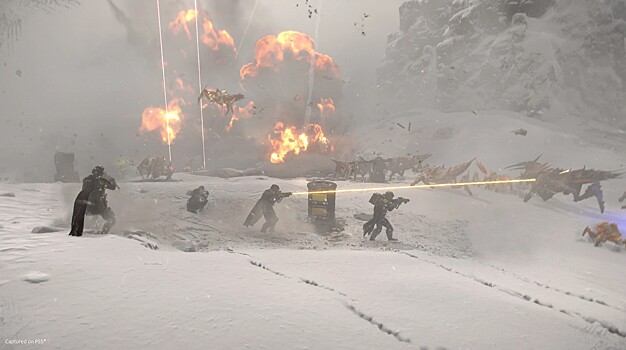Why did Sony's multiplayer games fail?
The servers of Concord, PlayStation's latest project, went down within weeks of its release – a record time by the standards of even the most disastrous multiplayer games. gamesindustry.biz explains why Concord's failure raises doubts about Sony's capabilities in the live services sector.

Sony's indifference towards Concord is somewhat understandable. The project was created by another company: the publisher acquired Firewalk Studios in 2023, and the intellectual property rights were simply part of the deal. The team has been working on this project since its inception in 2018.
Many of Firewalk's senior employees previously worked at Bungie, which Sony acquired last year. It seems like the studio was bought for their expertise and experience rather than for the game they were developing. And most of the decisions that led to Concord's sudden death were made before the studio became a Sony property. It's hard to blame a publisher for something he had no hand in.
However, the project's failure still raises some questions for Sony. Concord carries the company logo and is published under the auspices of the publisher's in-house studio—which for the past 10 years has been considered one of the most trusted quality assurance companies. Yes, PlayStation Studios has released projects before that failed to achieve commercial success. But small sales are one thing and shutting down the servers after a few weeks is another thing entirely.
Here's the thing. A few years ago, PlayStation management decided that releasing high-quality AAA blockbusters was not enough – the company also needed live services for playing in the field of Epic Games and HoYovers. That's why Sony spent billions on Bungie and Firewalk, and partnered with Arrowhead Games.
The latter turned out to be a huge success: Helldivers 2 became one of the biggest surprise hits of 2024, even as the game struggled to transition to a live-service format. Overall, however, Sony's move into this area seems quite chaotic. Concord has been pulled from the market, and Bungie, the company Sony initially gave creative freedom to, is cutting staff in waves. Sony's push into the live services market is going swimmingly and threatens to tarnish the reputation of other PlayStation studios.
Well, from the outside it's easy to say that Sony should have been more careful. The publisher was late to the live service trend and now releases games in a format that has earned a bad reputation with audiences. But what is undeniable about the company is its ability to choose appropriate purchases and find talent. Almost all the studios acquired by Sony started showing better results and creating their best games after the deal.
So why did the publisher get it wrong here? Why didn't anyone see that Bungie was on life support and realize that Concord's development needed to go in a slightly different direction? According to reviews from people who have worked with the Sony studio, the company always gives excellent feedback. Many people appreciate publishers' feedback, because… it really helps to exploit the potential of projects and improve the quality of games.
Concord does not appear to have received this response. And it is impossible to say what the cause is: lack of experience, knowledge or resources necessary for the development of direct services. The good news is that Sony is a big enough company to not suffer too much from such a failure.




Leave a Reply